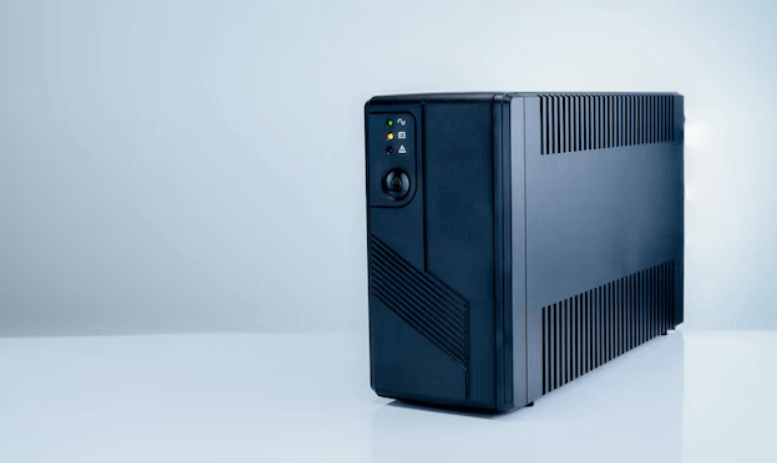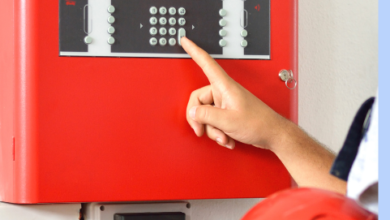UPS Power Supply Buying Guide: Protecting Your Business in Kenya

Your office is buzzing with activity when suddenly everything goes silent. The computers die. The lights vanish. Your staff stares at blank screens while your competitor across the street keeps working normally. They invested in backup power. You didn’t.
Power cuts happen daily across Kenya, and without a proper UPS power supply system, your business becomes a sitting duck. But choosing the wrong unit wastes money and leaves you exposed when disaster strikes. This guide helps you avoid expensive mistakes.
Kenya’s Power Reality Bites Hard
Anyone running a business here knows the struggle. The national grid fails without warning. Equipment breaks down. Weather causes chaos. Your work disappears in seconds.
Think about last Tuesday’s outage. How much did it cost you? Lost sales, corrupted files, angry customers. The damage adds up quickly.
Some businesses lose entire databases during sudden shutdowns. Others watch helplessly as point-of-sale systems crash during busy periods. Security cameras go dark. Internet connections drop. Productivity stops dead.
Recovery takes hours or days. Equipment repairs drain budgets. Customer confidence evaporates. Your reputation suffers whilst competitors who prepared properly keep serving clients.
Three Types Dominate the Market
Basic Offline Models
These switch to battery when mains power fails. Simple technology for basic needs. Desktop computers handle the brief switching delay without problems. Small offices use them for essential equipment only.
Limitations become obvious under heavy loads. The switching mechanism struggles with frequent outages. Battery life shortens quickly in demanding environments.
Line Interactive Systems
Most Kenyan businesses choose this middle option. They regulate voltage automatically whilst providing backup power. Better protection than basic models without premium pricing.
These units handle voltage fluctuations common in our electrical supply. Your equipment receives cleaner power even when the grid delivers poor-quality electricity. Battery life extends because the system doesn’t switch unnecessarily.
Online Double Conversion
The premium choice provides constant power conditioning. Your equipment never connects directly to utility power. Everything runs on clean, regulated electricity from the UPS battery system.
Critical applications need this level of protection. Servers, medical equipment, and sensitive electronics benefit greatly. The cost reflects the superior technology inside.
Actually, many businesses underestimate their power needs. An undersized system protects nothing when fully loaded.
Working Out Your Power Needs
List every device needing protection. Find the power consumption figure on each item. Usually printed on labels or mentioned in manuals. Add everything together, then multiply by 1.3 for a safety margin.
Real example from a Nairobi accounting firm:
- Four desktop PCs consuming 600 watts total
- Laser printer drawing 250 watts when active
- Network router and modem using 40 watts
- Two LCD monitors taking 120 watts
Total equals 1,010 watts. Safety margin brings the requirement to 1,313 watts minimum.
Runtime calculations matter equally. Standard units provide 5 to 15 minutes backup time. Enough for saving files and proper shutdown, but insufficient for continued operation. Extended runtime needs additional battery packs or alternative solutions like generators.
Essential Features Worth Paying For
Voltage regulation technology stabilises incoming power without draining batteries. Kenya’s grid delivers inconsistent voltage levels that damage sensitive equipment over time. This feature extends component lifespan significantly.
Surge protection shields against lightning strikes and electrical spikes. These events destroy computers instantly without warning. Quality UPS units include comprehensive surge suppression that protects valuable equipment investments.
Modern displays show real-time power conditions, battery status, and current load levels. This information helps identify developing problems before they cause expensive failures.
Software compatibility enables automatic file saving and system shutdown during extended outages. Many business owners overlook this capability, but it prevents data loss effectively.
Installation Gets Overlooked
Location affects performance dramatically. UPS units generate heat and require adequate airflow. Avoid dusty storage rooms, direct sunlight, and poorly ventilated spaces.
Represents the major ongoing expense. Most UPS batteries last three to five years under normal conditions. Kenya’s climate and frequent grid fluctuations reduce this lifespan considerably. Include replacement costs in your total ownership calculations.
Monthly testing ensures reliable operation when needed most. Unplug the unit whilst equipment runs on battery power. This simple check reveals potential issues before emergencies occur.
Some installations require professional setup, especially larger systems. Factor this cost into your budget planning.
Investment Considerations
Cheap units tempt budget-conscious buyers, but they often lack critical features and use inferior components. A reliable system protects equipment worth thousands of shillings for relatively small investment.
Brand reputation matters significantly in UPS markets. Established manufacturers provide better warranty coverage, technical support, and spare parts availability. Local service centres reduce maintenance costs and response times.
Consider lifetime costs rather than initial purchase price alone. Efficient units with longer-lasting batteries cost less over several years of operation.
Your Business Continuity Depends on This
Every Kenyan enterprise faces power reliability challenges. Outages will happen. Equipment will fail. The question becomes whether you’ll be ready.
Quality UPS power supply systems provide insurance for digital assets and business operations. The investment protects revenue streams, customer relationships, and competitive advantages.
Waiting for the next failure exposes unnecessary risks. Choose appropriate protection matching your specific requirements and budget constraints. When darkness falls elsewhere, your business keeps running smoothly.

